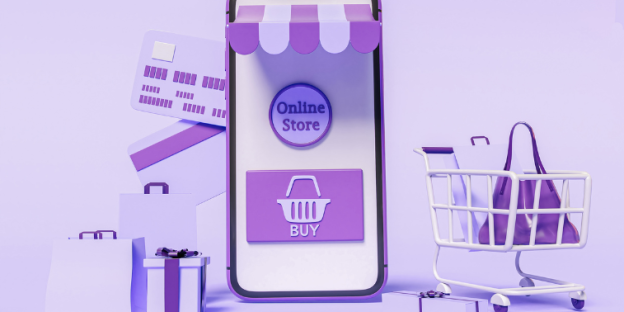How to Develop a Video Conferencing App like Zoom?

The pandemic caused so many troubles to the society but, the students were happy that they have got a better holiday to spend in a peaceful way. This didn’t lose for many days they started to miss classes and academics were missing the solution was hidden in everyone’s play store.
These apps were restricted to companies that have evolved into platforms for the general usage.
2020, a year full of uncertainties has made us adopt a new lifestyle. People are advised to maintain social distancing all across the globe. Now, many team members across organisations and industries are turning to video meeting apps to hold meetings as routine as a weekly team meeting or as grandiose as board meetings, making major company decisions over video. This brings greater productivity.
There are platforms offering free video conferencing and a range of tools and ensure remote teams getting the most out of their video chats. And features would help in building the app such as
1. Select Platform
Before building the app, looking for the runtime environment as web-based and native is very important in order scale in the technical stuff management like frameworks and programming language. And also technology that’s recently gaining importance is Progressive Web App (PWA), which combines both web and native helps to build strategy to build your application.
2. Define the Feature
Defining the features helps in designing the business requirements, focus on priority keeping in mind about effort and budget, to implement quality products or be compliant with some regulation.
Below is a short listed with some common realtime features offered by some popular video conference apps out there.
Profile creation – mainly start with registration which helps engaging user experience, and integrate this feature through third-party apps. In order to have proper profile management with names, mail ids, profile pic (optional), occupation, and much more.
Search engine – need to locate people first in order to start the communication, so far that some prerequisites like search engine, creating contact list, integrating phone book would help in better management.
Voice and video calls – the feature is majorly required when the app can process video call as a compliment there should be voice call also with HD quality standards, and audios must be clear and loud. With optimizing real-time connections with the best of your efforts.
Messaging Feature – integrating this feature gives a better environment to get cleared with doubts while sessions are going on. And also helps in communicating with feasible networks. The SDK possesses all the basic instances required for chatting. The cross-platform SDK reduces the development time of the app.
Group calling – having one to one communication is fine. But not sufficient to meetings, building apps for many user interaction at time would be great, have multi-user meetings and have fun with family. The scalability of application is directly proportional to cost of development.
End -to -End encryption – this ensures security in conversations and confidential from third party interruption. This uses the certain protocol to split the data into 256 bits long blocks- these blocks are then encrypted, transmitted to the destination, and then finally decrypted at the recipient’s side.
Screen Sharing – The features help in illustrating the content of your screen and share it to others mainly helps in presenting, tutorial and watching movies with family.
Virtual hand rising – helps in preventing the disturbance with multiple people speaking at time. Virtual-hand raising helps the users to convey their desire to speak by signalling the host.
Noise cancellation – sometimes background voices irritate the person on the other side. So using deep learning algorithms can suppress the background voices.
Improve appearance – comforting strategy with better appearance while video calling. And must provide a recording option for the video and flexible sharing options.
Mute participants – When the meeting host ensures that the attenders don’t speak out in return- they should be allowed to so with this feature.
3. Know the stack
Once set with what and where to build the app, thinking how to build is also one of the important things on the prerequisite. There are 2 way on building and running app in webRTC – on-premise and Cpass
On-premise means that you are responsible for both developing the application and managing the required server infrastructure. CPaaS means that you only take care of developing the app while using the infrastructure of a provider, usually paying a monthly fee for it.
Strategies video conference app development
-> Peer to peer approach – this works on on-premise, communication will be direct, browser to browser, or device to device. This added to the fact that it encrypts the media transport by default, makes it a secure solution for real time communication.
-> Media-Server approach – this works on on-premise, this approach provides you a central point for manipulating media streams, allowing you to add some advanced features, such as recording, simulcast and multi-party calls.
-> Cpaas(Communication-Platform-As-a-Service) – This is the simplest way to build a video conference app, as it frees having provision and maintains its own infrastructure and instead allows it to focus on writing applications.
Knowing the basics of the app, is like collecting requirements to build a house once done with collections. It’s time to see some models to get the overview of the app to get some visualization and extra information also. Some of those top trending video conference apps are
Zoom
A american communication technology company, it provides services through cloud-based peer-to-peer software platform. This focuses on customer satisfaction with easy usage of products, and gives high efficiency of users.
Zoom was founded by Eric Yuna, former corporate vice president of cisco. Zoom has come into existence with pandemic being reason helped in connecting people and helping things to be normal even working from home or conducting classes. The zoom users are happy with free plans, but looking for enhanced plans with enterprise-level communication, unlimited cloud storage, custom emails, a vanity meeting URL, and more.
Zoom provides services like zoom webinar, zoom chatting, zoom conference room, and zoom phone. And some of the major features that zoom supports
–>> Collaboration – Allows collaboration with up to 300 UR and external non-UR individuals, including chat, annotation, whiteboarding, and breakout rooms.
–>> Screen and application sharing – Presenters can share their whole desktop or individual applications.
–>> Dynamic voice detection – Primary camera view will automatically toggle to the active speaker.
–>> Scheduling – Browser, client, and plugin scheduling options, including delegation for co-hosts and schedulers.
–>> Recording – Record meetings locally and upload to Blackboard Learn, Box, OneDrive Video, or Youtube.
–>> Large room and webinar – Zoom sessions can be expanded to allow larger groups, up to 500 interactive participants in Large Rooms or 10,000 viewers via Zoom Webinars.
–>> Mobile devices – Feature-rich mobile apps for iOS and Android.
Zoom even lets you schedule calls in advance, chat anytime with any of your contacts, or connect to room conferencing hardware. All in all, it’s a nearly perfect team video app. And for full transparency
Google Meet
It is a video communication service developed by Google, it was a replacement for Google hangouts. It helps in deep integration with Google’s other apps.Create a meeting in Google Calendar, generate a meeting link that all meeting attendees can click to instantly join a call. And in the middle of a call, can find files from Google Drive and Apps and share them in chat, without leaving the call. Even can start a call directly from Gmail inbox.
Google meet provides live captioning, there’s also a tab-sharing feature that’s great for media sharing. Google meet introduced features to upgrade original hangout application, such as
–>> Unlimited number of meetings – Invites upto 100 participants to a meeting, using a free version.
–>> Live captioning during meetings – Follow along in real time with automated live captions powered by Google’s speech recognition technology.
–>> Compatible across devices – This works on any device flexible to join meetings from desktop/laptop, android and ios/ipad.
–>> Video and audio preview screen – Provide preview while joining the ongoing meeting.
–>> Adjustable layout and screen setting – Changes the layout in order display the most active content and participants.
–>> Controls for meeting – anyone can easily pin, mute, or remove participants.
–>> Screen sharing – Flexible sharing of the screen to present or collaborate on documents.
–>> Integration with google and microsoft office apps – Can join meetings directly from gmail or calender.
–>> Encryption in transit by default
Together with Meet’s deep integrations with the rest of G Suite, Meet just may turn into the best way to talk with your team.
Go To Meeting
It is a web-based video meeting service developed by LogMeln. With GoToMeeting, users can schedule meetings online, then use GoToMeeting’s app to join calls, share screens, and present to audiences. Can choose to schedule a recurring session or start a one-time call. And GoToMeeting also lets create a custom link for meetings. GoToMeeting offers all the features expect from a video conferencing tool aimed at professionals, including call recording, dial-in numbers, and HD video for up to six participants. Can monitor audio levels.
— Mobile apps for ipad, ios, android, desktop/laptop.
— Encryption and Authentication using SSL(secure socket layer), AES(advanced encryption standards)
— Multi monitor support.
— Meeting recording, playback for recording and scheduling saved meetings.
— Total audio package provides toll based phone or conferencing via VOIP.
— Go To Meeting hosts upto 250, with tier following for 3000 attendees.
— In room solution with Go To Room or InRoom Link.
There are so many apps around that came into existence just because of the pandemic and if you’re still behind Slack apps just because of its ease of use, but it makes more sense to stick with the tool that is already in use, so you don’t have to bounce back and forth between apps. Check the feature, choose your compatibility and flexibility that best support run compatible usage.




